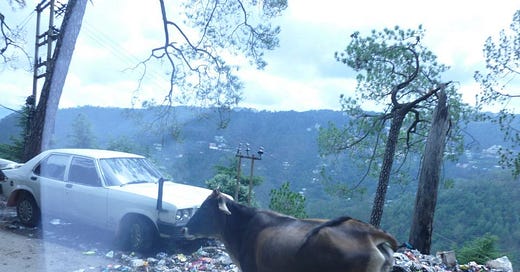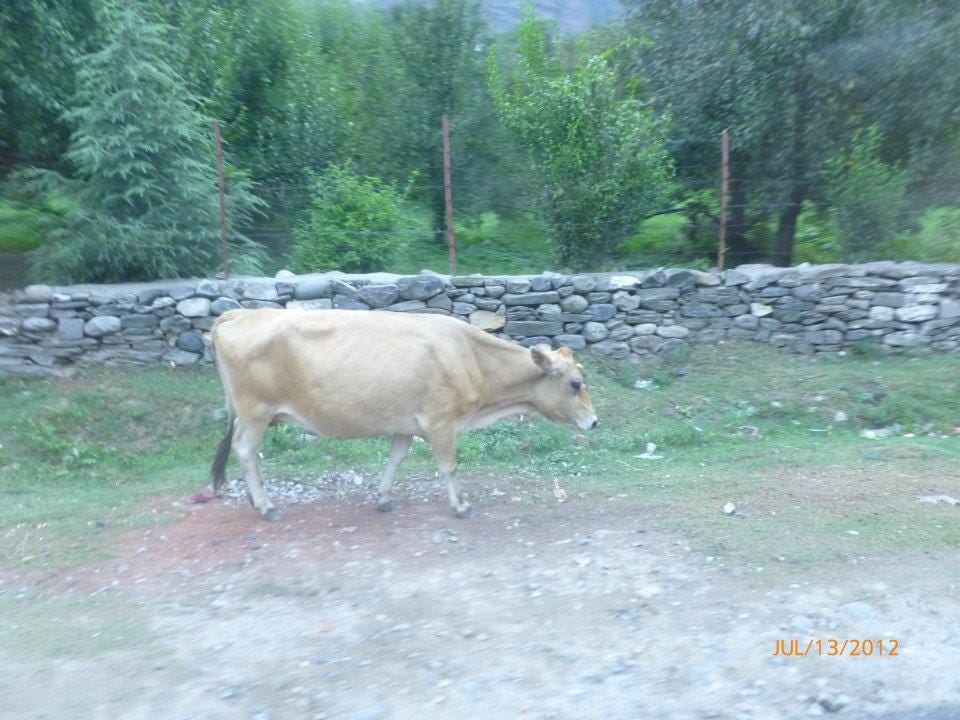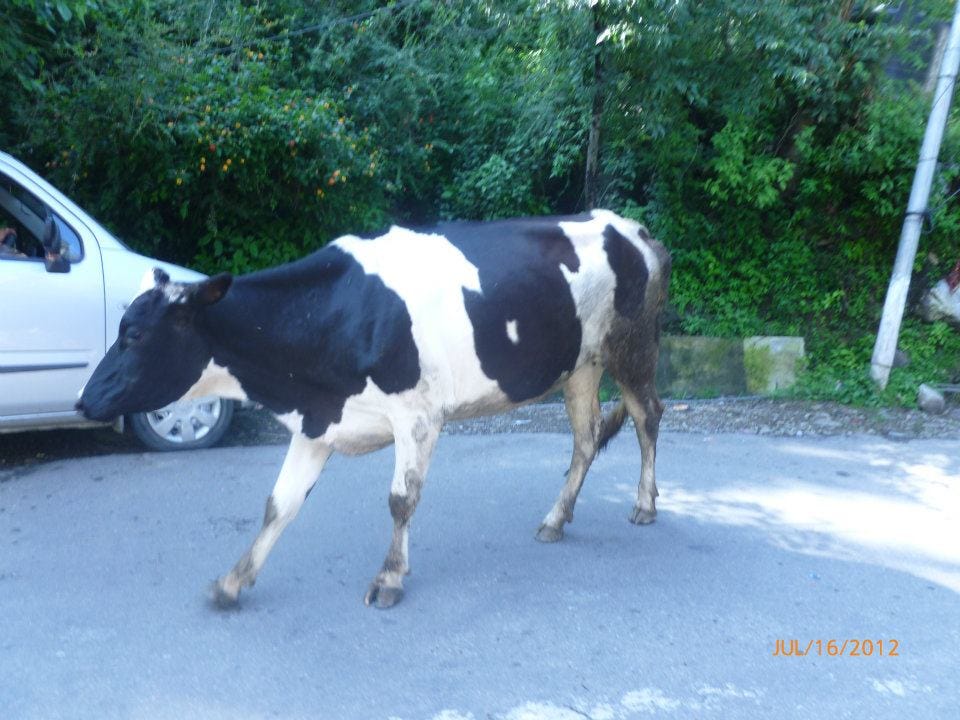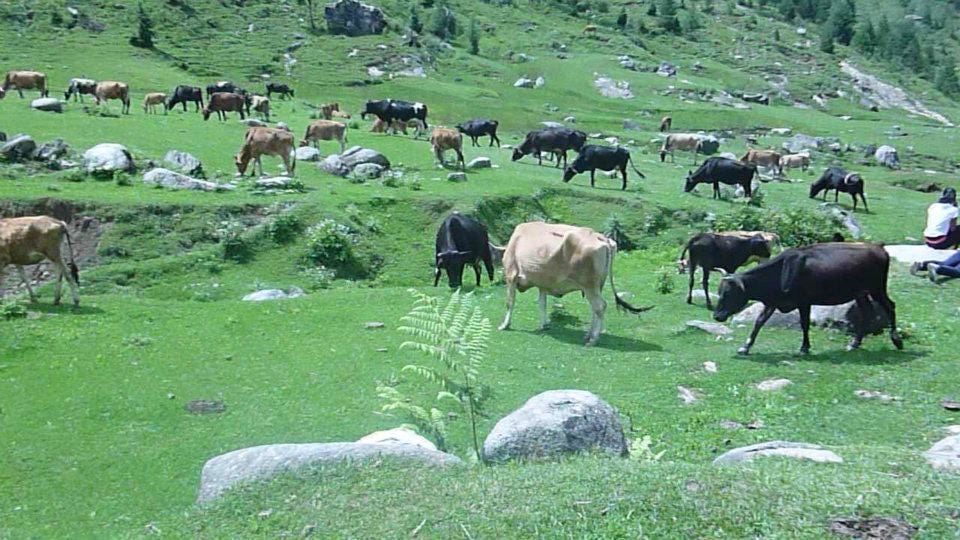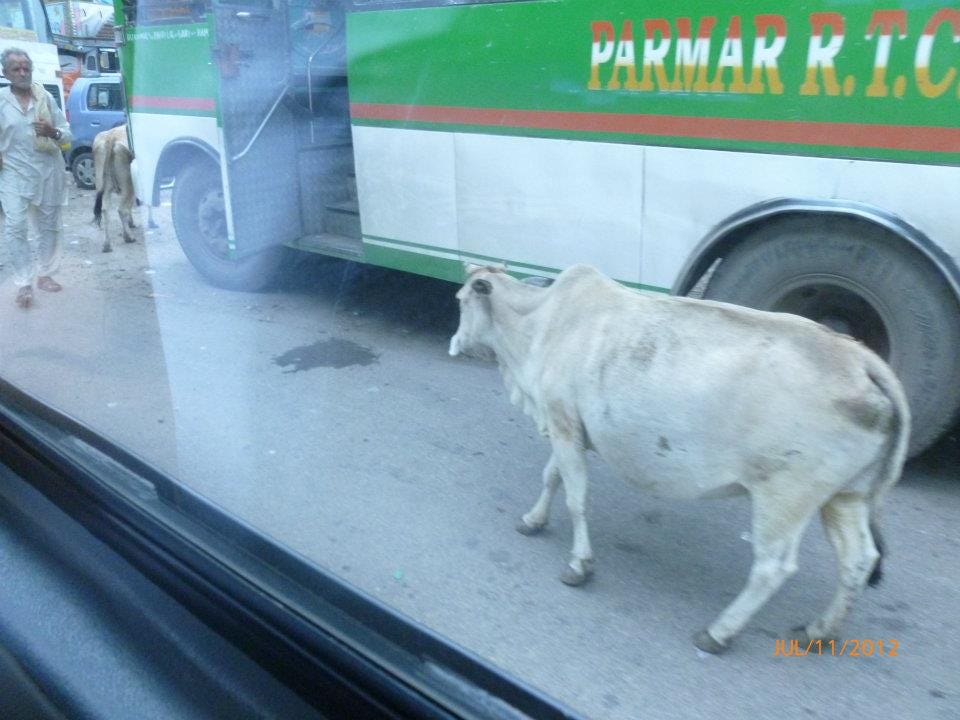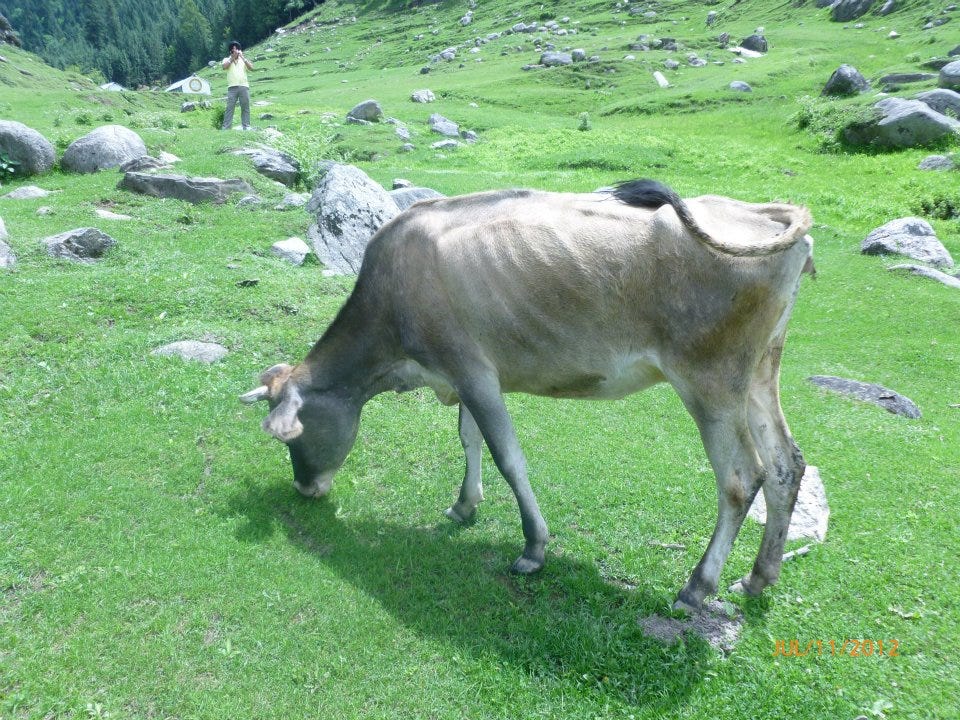Exploring the Role of Faith in Veganism: 'A Prayer for Compassion' Film Review
"Love and compassion are necessities, not luxuries. Without them, humanity cannot survive."
-Dalai Lama
Introduction
A Prayer for Compassion was released for online streaming in late 2019 and was a highly anticipated release for years prior. Though I do not consider myself a religious person anymore, I find religion and spirituality fascinating, and I was intrigued to see a film that would showcase the incredibly strong connection between faith and veganism. Though we also have movies like Peaceable Kingdom, there are still very few resources -- unless you know where to look -- for religious-vegan information, another reason why the release of this film was so anticipated.
While watching, I wrote three pages of notes, though it mostly turned out to just be names of people with interesting things they said and a few facts thrown in every so often. Because of that, I can't do a full review of what exactly happens in the film because there is no real overarching story; it's mostly a collection of anecdotes detailing why different people believe compassion to animals is integral to faith. That being said, I will be sharing my overall thoughts on the documentary, including some of my favorite moments, and my personal beliefs on the connection between religion and veganism.
Who It's For
Most people follow some form of faith, whether they're devout church-goers or not. This documentary is primarily for those people. As much as I don't want to say anything bad about this film -- because I genuinely believe it is very important -- I have to say that it wasn't for me. I didn't particularly enjoy it because faith is of absolutely no consequence to me regarding veganism. However, I must be clear that for anyone that is religious or even just "believes in something more," I believe this film could be incredibly impactful and would certainly help them recognize why veganism should be part of their faith.
Additionally, I'd like to say that there were some wonderful stories shared here, stories I never would've heard if it weren't for this film. And some of these stories could be helpful for people struggling with their faith after going vegan or for people of strong faith questioning how veganism could be related. There are so many leaders in this film sharing their work -- books, religious organizations, charities, sanctuaries, conferences, and more -- that could be so beneficial to anyone needing assistance or wanting to get more involved in religious veganism.
Lastly, one thing I really want to give the filmmakers credit for is the amazing editing work, and, while I know basically nothing about film editing, this is one of the most effective uses of animal footage I've ever seen in any vegan documentary. While most films linger on shots of animals suffering on farms or being slaughtered, the footage here is spliced together very quickly and interspersed throughout the film. There will be a short burst, only a few seconds long, of graphic images related to what the speaker is discussing, but it cuts away fast enough that you can't really process it until after it's gone. Now, you might think that is counterintuitive, that you need to show more at a time so nonvegans can really get a sense of what's going on. But I'd argue that you see just enough to think, Did I really just see what I thought I did? And, if so, why are they showing that here? Is that actually what happens? Combined with what the speakers are saying, I'd say it is quite effective.
Bringing People Together
We live in a time (which, arguably, is almost all times in recorded history) of religious division, largely perpetuated by the media and politicians. And it is a truly beautiful thing to see people of so many religions coming together in one place, in this movie, for them all to be speaking up for animals. One memorable moment from Victoria Moran (of Main Street Vegan) is when she noted that the one thing that brings all religions and spiritual beliefs together is compassion, and that was definitely exemplified in this film.
Unity
One of the churches discussed was Unity, founded by vegetarians Charles and Myrtle Fillmore in the late 1800s. Interestingly, this was not the first time I had heard of Unity, as I had read about the wonderful beginnings in The World Peace Diet by Dr. Will Tuttle (who was also featured in the film). Unfortunately, Unity Church has forgone teachings of compassion to animals since the Fillmores left. In fact, vegetarianism was originally written into the Church's statement of faith but was removed in the 1930s. It's disappointing that the Church defied the belief system of its founders by doing so.
Though I haven't been to church since my experience on Christmas Eve 2018 and have consistently felt my beliefs shift away from Christianity since going vegan, I was interested to hear about Unity again. And since there just happens to be a Unity Church only about five minutes away from my house, I'd consider going to see if it's any less hypocritical than all the other churches I've been to, though I'll admit I have little hope for that. (Ironically, it was after attending a Unity Church that Thomas Wade, the director of the film, decided to go vegan because he saw the hypocrisy in people following his faith.)
Exploring New Paths
One of the reasons I've separated myself from Christianity is that I've, for a long time, felt more aligned with Asian religions -- Buddhism, Jainism, Sikhism -- that don't just follow faith in some deity or deities, but in a compassionate way of living. While I have absolutely nothing against people of faith in a higher power -- in fact, I envy them in some ways -- I have found that I believe more in myself and following my code of morals than the teachings of ancient miracles in a book. My version of faith or spirituality is to follow a set of ethical standards of kindness to all beings and to the earth.
India, Jainism & the Sacred Cow
Ever since visiting in 2012, I've had a small (not-so-small) obsession with India. Before going, I wasn't sure it was a place I would like; prior to that trip, I'd been more interested in western Europe and Australia, places like America but different enough to still be exciting. However, it is precisely because India is so wildly opposite of my home country that I adore it so much. After returning from the trip, all I wanted to do was go back. Because of that experience, I started to learn more about Indian religions, and especially after going vegan three years later, I felt my values align more and more with them -- primarily Hinduism, Buddhism, and Jainism.
I'd like to focus on Jainism in particular because it's the religion that, in my opinion, is most aligned with veganism. One of the most fascinating aspects of that religion is how there are some devout Jains who carry brooms to sweep bugs out of the way in order to prevent stepping on them. It's clear that Jains value the ahimsa -- an ancient Sanskrit word meaning nonviolence -- principle quite seriously, as should we all. However, there was one interesting interview with a Jain woman in the documentary that didn't quite go as I thought it would. As a Jain, she did not eat eggs or even root vegetables (to prevent causing harm to microorganisms in the soil), but she did still consume dairy. After being questioned why and told of what happens to dairy cows, she said that she had no idea cows were harmed to produce milk products. And this leads me to my final point on India: the idea of the sacred cow.
Animal sanctuary Animal Aid Unlimited (which, coincidentally, I had learned about during my vegan-India research and have wanted to visit for years) shared that because cows are so sacred, most Indians will simply put the cows out on the streets instead of sending them to slaughter. (You can see some of my pictures of Indian cows below.) In fact, milk has an "elevated status" in the country because cows are seen as holy, and because of the cow's sacred status, the popular belief is that drinking/eating their milk is healthy and good for humans. Despite the fact that killing cows is illegal in most Indian states, because the dairy industry is so massive, India is one of the world's top producers of other cow products: beef, veal, and leather.
Random Enjoyable Facts
Lastly, I'd like to share some things I learned while watching that I couldn't naturally fit into the rest of my review but still wanted to share. Things like how it goes against Jewish tradition to allow the extinction of certain species. Or how Pope Francis once said that it contradicted Christianity for humans to harm animals...but then ate a veal and lobster meal in New York City. And how we have written history to make Native Americans look like brutish killers, while in reality, ancient Native Americans would never condone our current treatment of animals.
Conclusion
It seems that after writing this post and thinking deeper about the film, I've come to appreciate it more than after first watching it. I'll have to go back and rewatch to see if my opinions changed. But if nothing else, I hope that this review has been a somewhat helpful introduction into what this documentary is about and how faith and veganism are intertwined in all versions of religion and spirituality.
be conscious, be kind, be vegan


